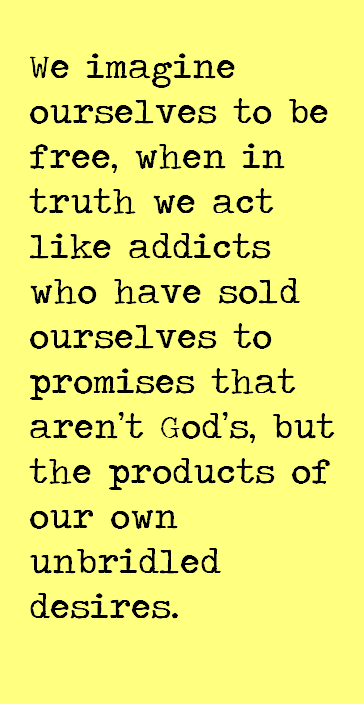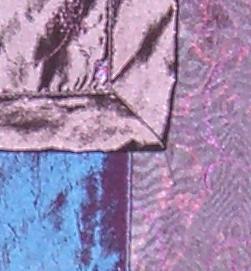In his autobiography, With Head and Heart, the great American teacher and prophet, Howard Thurman, recalls a heartbreaking scene.
On one of our visits to Daytona Beach I was eager to show my daughters some of my early haunts. We sauntered down the long street from the church to the riverfront. This had been the path of the procession to the baptismal ceremony in the Halifax River, which I had often described to them. We stopped here and there and I noted the changes that had taken place since that far-off time. At length we passed the playground of one of the white public schools. As soon as Olive and Anne saw the swings, they jumped for joy. “Look, Daddy, let’s go over and swing!” This was the inescapable moment of truth that every black parent in America must face soon or late. What do you say to your child at the critical moment of primary encounter?
“You can’t swing in those swings.”
“Why?”
“When we get home and have some cold lemonade I will tell you.” When we were home again, and had had our lemonade, Anne pressed for the answer. “We are home now, Daddy. Tell us.”
I said, “It is against the law for us to use those swings, even though it is a public school. At present, only white children can play there. But it takes the state legislature, the courts, the sheriffs and policemen, the white churches, the mayors, the banks and businesses, and the majority of white people in the state of Florida – it takes all these to keep two little black girls from swinging on those swings. That is how important you are! Never forget, the estimate of your own importance and self-worth can be judged by how many weapons and how much power people are willing to use to control you and keep you in the place they have assigned to you. You are two very important little girls. Your presence can threaten the entire state of Florida.”
Howard Thurman, With Head and Heart: The Autobiography of Howard Thurman (Orlando, FL: Harcourt Brace & Company, 1979) p. 97
I wish I had half the wisdom and presence of mind this father showed in affirming his daughters’ worth and dignity in a society bent on robbing them of their full humanity.
He could have but he didn’t sneak them into the playground so they could pretend to be free for a few moments, swinging high with the tips of their shoes touching the clouds, and hoping that they wouldn’t get caught.
He could have but he didn’t make up a story that allowed him to avoid naming the ugly reality of racism. He didn’t tell them that they couldn’t swing on those swings because their mother was expecting them at home, or that he would build them a much better swing in the back yard.
He told them the truth, and he did it in a way that didn’t break their spirits or confine them to the role of victims in a demonic system of oppression. Olive and Anne learned how important they were by the amount of resources needed to keep them in the place those in control had assigned to them. Their dad didn’t tell them that they were his little princesses no matter what the rest of the world said; he told them the truth in a way that affirmed their humanity and allowed them to grow up strong in a world designed to keep them out and down. That design, of course, has nothing to do with the world God wants us to live in.
The story of Jesus we heard this morning is like a condensed version of the entire Gospel: God comes to free us from sin and restore life in fullness.
In this story, Jesus enters the land of the gentiles, the territory of those who are outside the land of promise. And there, on the far side of the lake, he meets a man of the city, and he meets him outside the city.
This man hasn’t worn clothes for a long time, and he hasn’t lived in a house but in the tombs—and to say that he was living naked in the tombs is to say that he was worse off than the dead, for the dead at least have their bodies wrapped in grave linens and they are at peace. This man doesn’t know peace.
To be human is to be part of a family, to be in community; to be human is to love and be loved, to know God and to know one’s name. And Jesus asks the man, “What is your name?” and he says, “Legion.”
That’s not a name, that’s a diagnosis. Legion means a few thousand. Legion means the man’s identity, his true self has disappeared amid the pull of thousands of demonic forces that possess him. His soul has been buried in desolation, under thousands of lies and oppressions, voices that slowly robbed him, saying,
You don’t count.
You don’t matter.
You’re not good enough.
You are ugly.
You are worthless.
You are nobody.
Jesus asks him, “What is your name?” And there is no name, only the thousandfold absence of what makes a human being a human being. There is no memory of knowing love and hope, no ability to imagine ever experiencing them again.
In the book of Psalms, a voice whispers in torment, The enemy pursues my soul, he has crushed my life to the ground; he has made me dwell in darkness like the dead, long forgotten. Therefore my spirit fails; my heart is numb within me (Psalm 143:3-4). But this man has no name, no memory or hope, not even a prayer.
This little story, however, this fragrant essence of the gospel boldly declares that all that keeps the man from living life as a human being created by God, that all the voices and powers cannot rule in the presence of Christ. They come out and enter a herd of swine and they finish their destructive work by destroying themselves in the depths of the sea. That is the end of all that keeps us from living life as God intended it from the beginning.
The people from the city find the man sitting at the feet of Jesus, clothed and his right mind. Perhaps you wonder where he found his new clothes so quickly, out among the graves. The Apostle Paul would suggest that the man had put on Christ, for in Christ Jesus you are all children of God through faith. As many of you as were baptized into Christ have clothed yourselves with Christ (Galatians 3:26-27).
In Christ we are given our true identity as children of God, we are given our true name, and with it our true purpose. The world will call us names, but only God knows us fully and gives us Christ that we may come to know ourselves and one another as beloved by God.
And in Christ, there is no longer Jew or Gentile, only one humanity of God’s people.
There is no longer slave or free, only one humanity of free people serving God and one another.
There is no longer black or white or brown, only one humanity of many shades of beautiful.
There is no longer male and female, only men and women who know their true identities as God’s sons and daughters.
And with that new sense of identity, with that new name we are sent to declare what God in Christ has done for us. The call to mission and witness may take us halfway around the world, but more than likely it takes us back to our homes and our places of work and to the places where we and our children face the demons of our time.
The better we know who we are, who we really are, the better we will be able to encourage in our children a sense of self that isn’t determined by a thousand demanding voices, but by their dignity and importance as sons and daughters of God.
I began with a story of a father who gave his daughters the strength to know and resist the forces that would rob them of their humanity. I want to end with another story, one that comes to us by way of the Brothers Grimm, and it also addresses the fragile nature of our humanity.
There was once a very old man, whose eyes had become dim, his ears dull of hearing, his knees trembled, and when he sat at table he could hardly hold the spoon, and spilt the broth upon the table-cloth or let it run out of his mouth.
His son and his son’s wife were disgusted at this, so the old grandfather at last had to sit in the corner behind the stove, and they gave him his food in an earthenware bowl, and not even enough of it.
And he used to look towards the table with his eyes full of tears. Once, too, his trembling hands could not hold the bowl, and it fell to the ground and broke. The young wife scolded him, but he said nothing and only sighed. Then they bought him a wooden bowl for a few [pennies], out of which he had to eat.
They were once sitting thus when the little grandson of four years old began to gather together some bits of wood upon the ground.
“What are you doing there?” asked the father.
“I am making a little trough,” answered the child, “for father and mother to eat out of when I am big.”
The man and his wife looked at each other for a while, and presently began to cry. Then they took the old grandfather to the table, and henceforth always let him eat with them, and likewise said nothing if he did spill a little of anything.
The Old Man and his Grandson, by the Brothers Grimm, translated by Margaret Taylor (1884)
Wherever we are in the long procession of generations, I wish us all a happy Father’s Day.








